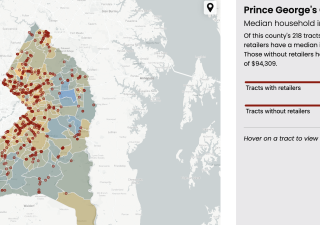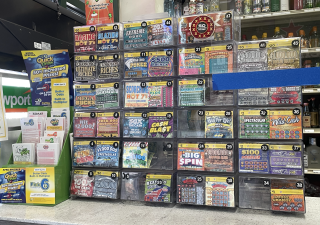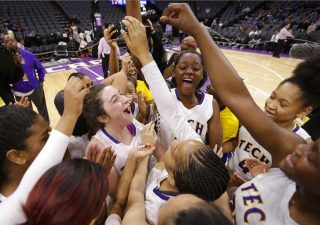Governors approved nearly 300 police reform bills after Floyd’s May 2020 killing in Minneapolis, according to an analysis of data from the National Conference of State Legislatures by the Howard Center.
The Howard Center for Investigative Journalism
Mega Billions: The great lottery wealth transfer
Using an analysis of cellphone location data, this nationwide investigation of state lotteries found that stores that sell tickets are disproportionately clustered in lower income communities in nearly every state and that their customers come from those neighborhoods. This pattern, coupled with predatory advertising practices and powerful state lobbying efforts, is driving a multibillion-dollar wealth transfer from low-income U.S. communities to powerful multinational companies, the collaboration between the Howard Center and Boston University found.
The Lottery on Your Block
A first-of-its-kind, nationwide investigation of state lotteries by the Howard Center for Investigative Journalism found that stores that sell tickets are disproportionately clustered in lower-income communities in every state.
Stores cash customers’ checks, then sell them lottery tickets
At All Checks Cashed in Everett, Massachusetts, a red neon sign beckons customers to cash their checks, pay utilities and try their luck with scores of lottery tickets.
About “Mega Billions: The great lottery wealth transfer”
In the popular imagination, the lottery is a harmless amusement in which people spend a few dollars on a Powerball ticket when the jackpot gets big. Data journalists and reporters from the Howard Center for Investigative Journalism at the University…
State lotteries transfer wealth out of needy communities
WARREN, Mich. — While the growing expansion of casinos and state-sanctioned sports betting steal the spotlight, state lotteries have nearly doubled in size over the past two decades, driving a multibillion-dollar wealth transfer from low-income U.S. communities to powerful multinational…
State lottery advertising tells players half of the story
State lotteries spend more than a half-billion dollars a year on pervasive marketing campaigns designed to persuade people to play often, spend more and overlook the long odds of winning.
Scientific Games’ lottery playbook succeeded, then spread
The growth of the lottery business nationwide was inspired in large part by the lobbying innovations of a single multinational gambling company, Scientific Games Holdings LP.
State lotteries are increasingly ceding control to multinational firms
Lottery systems nationwide are evolving into quasi-privatized operations, with state governments assuming an oversight role while private companies reap millions running this sophisticated form of gambling.
Unlevel Playing Fields
This collaboration between the Howard Center, The Shirley Povich Center for Sports Journalism and PBS NewsHour revealed that high school girls are still at a disadvantage nearly 50 years after Congress passed the sweeping Title IX law that guarantees equity for girls and boys in school-based athletics. In nearly a dozen stories and a national poll, the investigation illustrated girls’ second-class status, explained why the law isn’t working and examined solutions to fix the situation.
Title IX, which passed in 1972, is a federal law that prohibits sex-based discrimination at any school that receives funding from the federal government, including in sports programs. While Title IX has led to a significant increase in girls playing scholastic sports, it has fallen short of achieving equity for high school girls in areas such as facilities, equipment, scheduling and publicity, the four-month, student-led investigation found.





